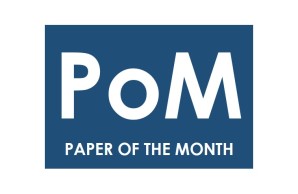Das Prodekanat für Forschung würdigt jeden Monat UKE Autorinnen und Autoren einer herausragenden Publikation, die in den vorangegangenen 2 Monaten hochrangig publiziert wurde. Ziel ist es, die am UKE enstandenen Forschungsergebnisse mit ihrer Bedeutung in der Wissenschaft einer größeren Öffentlichkeit am UKE vorzustellen. Der Aufruf zur Teilnahme richtet sich an Wissenschaftlerinnen und Wissenschaftler aller Fachgebiete. Einreichungsfrist für eine Bewerbung um die Auszeichnung des "Paper of the Month" ist jeweils Ende eines Monats (siehe Bewerbungsformular).
Das PoM-Archiv finden Sie hier:
UKE Paper of the Month June 2024
Autoantibodies Targeting Nephrin in Podocytopathies
F.E. Hengel, S. Dehde, M. Lassé, G. Zahner, L. Seifert, A. Schnarre, O. Kretz, F. Demir, H.O. Pinnschmidt, F. Grahammer, R. Lucas, L.M. Mehner, T. Zimmermann, A.M. Billing, J. Oh, A. Mitrotti, P. Pontrelli, H. Debiec, C. Dossier, M. Colucci, F. Emma, W.E. Smoyer, A. Weins, F. Schaefer, N. Alachkar, A. Diemert, J. Hogan, E. Hoxha, T. Wiech, M.M. Rinschen, P. Ronco, M. Vivarelli, L. Gesualdo, N.M. Tomas, and T.B. Huber, for the International Society of Glomerular Disease
ABSTRACT:
BACKGROUND: Minimal change disease and primary focal segmental glomerulosclerosis in adults, along with idiopathic nephrotic syndrome in children, are immune-mediated podocytopathies that lead to nephrotic syndrome. Autoantibodies targeting nephrin have been found in patients with minimal change disease, but their clinical and pathophysiological roles are unclear.
METHODS: We conducted a multicenter study to analyze antinephrin autoantibodies in adults with glomerular diseases, including minimal change disease, focal segmental glomerulosclerosis, membranous nephropathy, IgA nephropathy, antineutrophil cytoplasmic antibody–associated glomerulonephritis, and lupus nephritis, as well as in children with idiopathic nephrotic syndrome and in controls. We also created an experimental mouse model through active immunization with recombinant murine nephrin.
RESULTS: The study included 539 patients (357 adults and 182 children) and 117 controls. Among the adults, antinephrin autoantibodies were found in 46 of the 105 patients (44%) with minimal change disease, 7 of 74 (9%) with primary focal segmental glomerulosclerosis, and only in rare cases among the patients with other conditions.Of the 182 children with idiopathic nephrotic syndrome, 94 (52%) had detectable antinephrin autoantibodies. In the subgroup of patients with active minimal change disease or idiopathic nephrotic syndrome who were not receiving immunosuppressive treatment, the prevalence of antinephrin autoantibodies was as high as 69% and 90%, respectively. At study inclusion and during follow-up, antinephrin autoantibody levels were correlated with disease activity. Experimental immunization induced a nephrotic syndrome, a minimal change disease–like phenotype, IgG localization to the podocyte slit diaphragm, nephrin phosphorylation, and severe cytoskeletal changes in mice.
CONCLUSIONS: In this study, circulating antinephrin autoantibodies were common in patients with minimal change disease or idiopathic nephrotic syndrome and appeared to be markers of disease activity. Their binding at the slit diaphragm induced podocyte dysfunction and nephrotic syndrome, which highlights their pathophysiological significance.
STATEMENT:
“Our work opens a pathomechanisms-based understanding and future classification of antibody-mediated podocytopathies in both adults and children, voiding the current classification as ‘Idiopathic’ Nephrotic Syndrome in children or disease description based on histological pattern as in Minimal Change Disease or Focal Segmental Glomerulosclerosis in adults. It paves the way for pathomechanisms-based diagnosis, prognostication, and therapeutic approaches in affected patients in the future.”
BACKGROUND:
This work was performed at III. Medical Department of Internal Medicine in the groups of Nicola M. Tomas and Tobias B. Huber. It was part of the postdoctoral work of Felicitas E. Hengel within her iPRIME clinician scientist scholarship. All three authors have strong research interests in the field of podocytopathies and autoimmune kidney disease.
The New England Journal of Medicine, 2024, online ahead of print
Congratulations to all authors!
Next PoM: To apply, the publication must have been published in June 2024. Applications will be considered in two rounds of the selection process, i.e. two months. Please send your completed PoM application to Dr. Anne Wulf by 31/07/2024.

